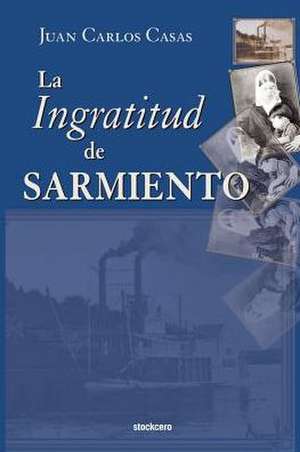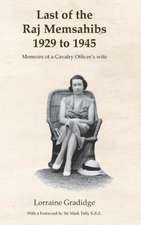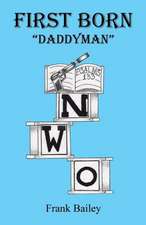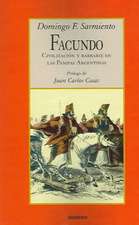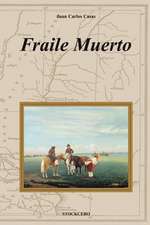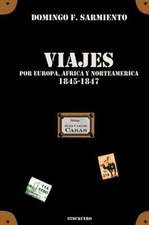La Ingratitud de Sarmiento
Autor Juan Carlos Casases Limba Spaniolă Paperback – 31 ian 2003
Preț: 178.61 lei
Nou
Puncte Express: 268
Preț estimativ în valută:
34.18€ • 35.78$ • 28.28£
34.18€ • 35.78$ • 28.28£
Carte tipărită la comandă
Livrare economică 07-21 aprilie
Preluare comenzi: 021 569.72.76
Specificații
ISBN-13: 9789872050689
ISBN-10: 9872050686
Pagini: 260
Dimensiuni: 152 x 229 x 15 mm
Greutate: 0.39 kg
Editura: Stockcero
Locul publicării:Argentina
ISBN-10: 9872050686
Pagini: 260
Dimensiuni: 152 x 229 x 15 mm
Greutate: 0.39 kg
Editura: Stockcero
Locul publicării:Argentina
Descriere
This story is based on "Travels through Europe, Africa and North America -1845/1847" by the Argentine writer Domingo Faustino Sarmiento, where he details his trip but fails to recall the name of the American lady who helped him with money. Could he be concealing the name of a lady whose reputation he might harm due to a secret love affair?
Notă biografică
Lawyer specialized in the Financial Market, writer and journalist. From 1980 to 1996 he wrote the Sunday column "Dialogues in the City" in the newspaper La Nación under the pseudonym "David Home". He also collaborated in La Nueva Provincia, Lagniappe Letter, Archivos del Presente, Márgenes Agropecuarios, Prensa Económica and edited the weekly newsletters "Mercados Financieros" and "Argentine Financial News".
He is the author of the books: The return of the repatriated Ulises Izakerri (Emecé 1979), Fraile Muerto (1988), The Ingratitude of Sarmiento (Atlántida 1989), No a la Decadencia Argentina, along with Guy Sorman (Atlántida 1991), New Politicians and new policies in Latin America (Atlántida 1991), whose translation into Portuguese was published by Editora Record of Rio de Janeiro. <
Casas has written stories and South American and North American historical episodes from the time of independence that remain unpublished.
